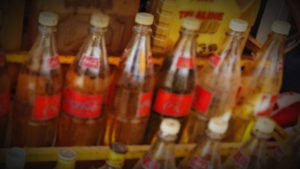 Technology Solution Retail Outlets (TSRO), are commonly known as Fuel Vending Machines that addresses the fuel requirement of locations certified by LGU’s to be catered by the “bote-bote” (soda bottles) trade.
Technology Solution Retail Outlets (TSRO), are commonly known as Fuel Vending Machines that addresses the fuel requirement of locations certified by LGU’s to be catered by the “bote-bote” (soda bottles) trade.
The “bote-bote” retailing of fuel is deemed dangerous to the health and safety of both the consumer and the retailer plus the source and quality of the fuel being sold cannot be ascertained to be compliant to the prescribed standards.
TSROs, like the fuel retailing outlets are also governed by the DOE’s Retail Rules (DC2017-11-0011), which specifically stipulates under Rule IV b. TSRO, the list of requirements for compliance:
- Secure Certificate of Endorsement from LGU – Certifying that a TSRO intends to address the “bote-bote” retailing in the area being applied for;
- Secure Certificate of Compliance (COC) from DOE;
- Observance of 1 kilometer radius from another Retail Outlet;
- No other commercial establishment shall installed/constructed with the Retail Outlet rather than those necessary for its operation;
- The vehicle being serviced and the delivery of the liquid fuels by the tank truck shall at all times be inside the business premises;
- One (1) meter set back distance shall be maintained in (a) the cashier’s boots or dispensing pump to firewalls and (b) tank trucks to firewalls (during supply operations).
Moreover, the DOE issued an Addendum to the Rule IV b. which allows a maximum of 2000 liters capacity for above ground storage tank (both for gasoline and diesel) that is petroleum compatible except plastic (HDPE) and appropriately protected with no visible mark of corrosion. In addition, display of price and volume (in liters) should be present for dispensing pumps that should be equipped with safety breakaway couplings and a petroleum compatible hose not to exceed 5.5 meters. Additionally, automatic shut off nozzles must also be present in the dispensing pumps.
TSROs are reportedly growing in several areas across the country. According to reports, there are more than 200 TSROs operating in Oriental Mindoro and MIMAROPA (Marinduque, Romblon, Palawan). Expansion areas reportedly includes Region 6 – Western Visayas consisting of 6 provinces namely Aklan, Antique, Negros Occidental, Capiz, Guimaras and Iloilo.
PIP Position
PIP supports the government initiatives to counter the “bote-bote” or soda bottle trading of fuel as this practice is unsafe and product quality is not assured. Additionally, TSROs provide business opportunities and employment to small and medium sized entrepreneurs in the locations where they operate.
However, TSROs should also be supervised and monitored to ensure equal compliance to the DOE’s Retailing Rules and other government regulations to ensure safety and a level playing field. In summary, PIP has expressed concerns on the following:
- Health and Safety;
- Proliferation of TSROs in non “bote-bote” areas; and
- Level playing field.
On health and safety concerns, PIP has recommended that above-ground storage for 2000 Liters should be reconsidered as the Fire Code only allows a maximum of 454 liters with each container not exceeding 227 liters. Above ground storage of fuel also requires a special concrete enclosure with mandated set back requirements from potential sources of ignition and nearby structures. In addition to this, the use of reconditioned drums should also be prohibited as their integrity cannot be ascertained.
There are reported cases already that TSRO’s are seen being established in urban locations. There are online advertisements of TSRO equipment being offered at a discount for Metro Manila and surrounding locations. The DOE in a recent forum admitted that their official records as of September only shows a very limited number of Certificate of Compliance being given to TSRO’s and that the Fuel Vending Machines does not have any local certifying mark like the PS mark which can attest to its quality and safety.
PIP has always advocated for a level playing field amongst all players, whether these are TSRO’s, Marine Outlets and the regular fuel retail outlets. TSRO’s should also be monitored for compliance to BIR registration and issuance of receipts, compliance with fuel marking certificates and bio fuel laws, compliance to the stringent requirements of the Department of Energy’s (DOE) Certificate of Compliance (CoC) and reportorial requirements and to the safety standards mandated by the Bureau of Fire Protection’s (BFP) Fire safety inspection and certificate.
A level playing field promotes investments, fair & healthy competition, consumer safety and tax generation for the government. Government efforts should be intensified to ensure that all abide by the rules and regulations in place, whether they are TSRO’s or regular retail fuel outlets.